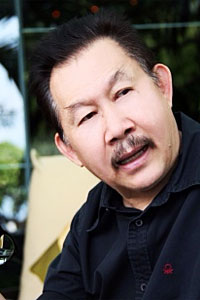Deputy Prime Minister Somkid Jatusripitak recently held discussions with leaders of the various research institutes, telling them he wanted to see them play a more proactive role in research and development that could lead to meaningful commercial applications.
Mr Somkid's objective is more than justified in a country like Thailand, where what passes for "research" is first and foremost intended to serve the needs of those concerned, rather than those of the real world.
The concept of R&D in Thailand is commonly confined to the fields of science and technology. However, during my tenure as director of the Programme on Transnational Relations and Development Options at the Thailand Research Fund in the 1990s, I had an opportunity to launch a score of fresh experiments with a number of the most able and conscientious researchers in our country, aiming to initiate certain social policies that were thought to be imperative for the times.
A prime example is the constitution of 1997. Its first draft, printing, and distribution were operated and sponsored by the TRF.
In the early 1990s, Prawase Wasi, a key mentor of the TRF, told us that he and some public lawyers had conceived the idea of drafting a new constitution in the hope of resolving the hangovers left by the military violence of May 1992.
Soon after, law scholar Borwornsak Uwanno, then an associate professor at the Faculty of Law at Chulaongkorn University, visited me at the TRF. In our productive discussions, he agreed to bring together some of the brightest young blood public law professors to draft the first constitution of its kind.
Because of the obvious political contingencies, we fast-tracked a relatively modest research grant for him to head a team of public lawyers to draft a constitution in the hope of leading Thailand out of its political dead-end. As part of the research planning, consultations with senior public lawyers and politicians were held in Chiang Mai and Bangkok. Eventually, some 15 interrelated research projects were outlined and written by the public lawyers who were hand-picked by Mr Borwornsak from Chulalongkorn and Thammasat universities.
Under his leadership, and with constant consultations with Prof Dr Prawase, in matter of a few months the first draft was finished and edited -- it totalled about 2,000 pages. By any standard, for a research project costing less than 1 million baht, the results were simply beyond belief, for this was a draft constitution that was to be the foundation of the constitution of 1997, characterised by a powerful executive branch, the party list and, last but not least, independent organisations.
In the mid-1990s, the Chuan Leekpai, Banharn Silpa-archa and Chavalit Yongchaiyudh regimes were in power. Owing to unusually novel and innovative ideas written in the draft constitution, we were sceptical about whether such governments would be receptive of such a constitution draft. After a situational analysis, we decided to publish all of the research reports, totalling about 2,000 pages, with each subject in individual book format, and put them together in one, easy to read package.
Apparently, the only way to give this new constitution draft a chance was to distribute copies to all members of the House of Representatives, which was believed to be rather conservative because this draft was precisely designed to change their political thinking, habits and behaviour. As these research reports were sent by registered mail to each member in the House of Parliament, copies were also distributed to key members of the legal community, university administrators and the press.
As a research grant manager, the best that one can do is to let the relevant stakeholders have an opportunity to contemplate and decide what to do with the impressive research studies. With the research reports easily accessible, Mr Borwornsak was in a good position to organise a series of brainstorming sessions with professional groups, especially those in the House of Representatives, which was a key factor in getting the new ideas smoothly accepted.
The end result is now well-known, as this draft constitution was overwhelmingly received by successive governments and the academic and legal communities, and the press. Eventually, with constant, daily headlines in the press about the new ideas in the draft constitution, what were previously new became gradually familiarised, and finally institutionalised by the official writers of the constitution of 1997.
To be sure, this constitution draft did not give birth to a perfect constitution, but as an R&D in social policies, it was an achievement far beyond the value of the small research grant. For this reason, the TRF Policy Board under the leadership of the late Sippanondha Ketudat agreed to reward Mr Borwornsak for being a successful research team leader.
This was the first time that a research study was deliberately utilised in an effort to ignite a substantial change in social policies in Thailand. There is no reason why this model cannot be repeated to pioneer changes in the other fields of social policies.
Boonrak Boonyaketmala is a former professor and dean of Thammasat University, and a founding programme director in the social sciences and humanities at the Thailand Research Fund. Comments are welcome at reponses1234@yahoo.com.
